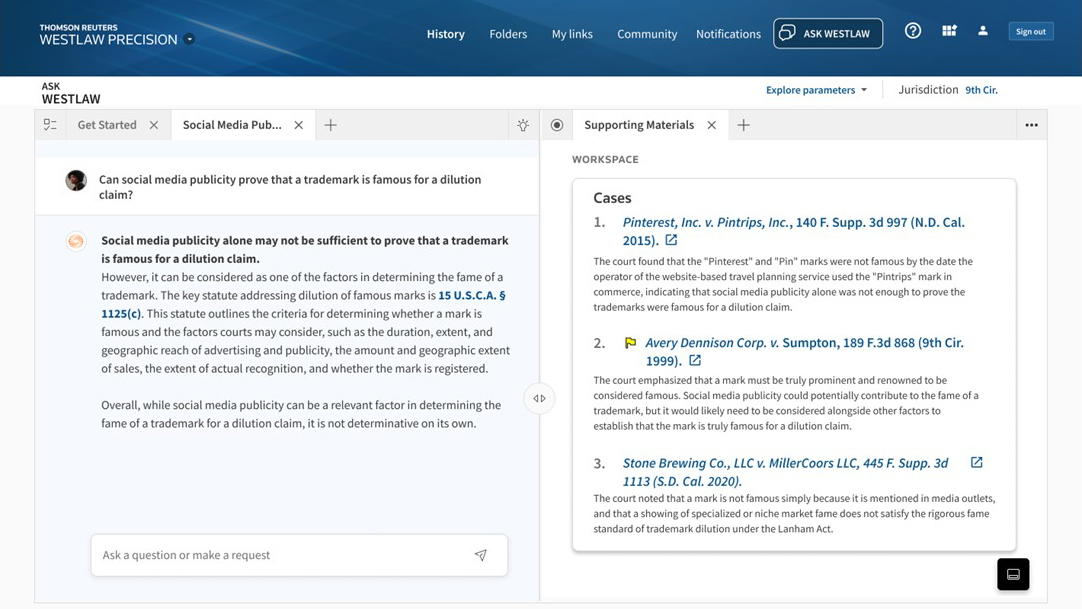How Generative AI Will Change How Legal Professionals Work

The legal industry is both concerned and excited about how generative AI is shaping the way legal professionals work. With Thomson Reuters investing $100 million annually to further integrate AI capabilities into its offerings, the company is making a significant impact on the future of work.
Legal Current shares perspectives from Thomson Reuters Legal Professionals President Paul Fischer and Chief Product Officer David Wong on how Thomson Reuters is incorporating generative AI capabilities across its legal solutions and developing an intelligent contract drafting solution with Microsoft 365 Copilot.
“The potential for generative AI to transform how we live and work is exciting,” Fischer said on LinkedIn. “An area I’m particularly excited about is how Thomson Reuters is – once again – changing the research and workflow landscape for legal professionals.”
Fischer noted that Thomson Reuters has a history of leveraging AI and machine learning to improve search and workflow capabilities for legal professionals.
“Over the coming weeks and months, we will roll out generative AI capabilities in Westlaw Precision, Practical Law, and Drafting tools,” Fischer said on LinkedIn. “We’ll deliver new ways for our customers to find answers to complex legal questions in seconds, based on our proprietary content and editorial expertise, and to generate powerful work product, powered by HighQ, Practical Law, and Document Intelligence.”
Wong noted the company’s approach continues a long tradition of customer collaboration. He discussed the Thomson Reuters legacy during a media briefing he hosted and in The Globe and Mail.
“At Thomson Reuters, we’ve been leveraging AI and machine learning in our professional information products for decades and we first started experimenting with incorporating generative AI into our solutions back in 2020, when the technology was still very new,” Wong explained in The Globe and Mail. “That head-start has really positioned us well to start integrating generative AI into several of our research and drafting solutions.”
Wong added, “Our entire approach to generative AI starts with our customers.”
He said product-development efforts focus on identifying customers’ pain points and designing solutions that reduce the time spent on repetitive tasks while improving the quality of their output.
Wong emphasized how two Thomson Reuters assets – “our proprietary research databases and our human expertise for training and tuning these generative AI models” – are critical to getting generative AI right.
“Access to reliable, authoritative reference data and training are the two keys here,” Wong explained. “In practical terms, that means generative AI use cases focused on a highly technical, specialized subset of data like case law must be able to synthesize existing large language model data with proprietary content databases to deliver concrete citations to support their outputs. Importantly, that process also needs to be intermediated by human subject matter experts who understand the nuances and the context to train and fine tune the results. That’s precisely why we’re so excited about the prospects for generative AI for legal and tax professionals because we are uniquely positioned to deliver both. Our legal and tax and accounting research databases are the gold standard and our huge teams of legal and tax professionals hold the keys to fine tuning these algorithms to be incredibly powerful and accurate.”
For more insights, read Fischer’s LinkedIn post and Wong’s interview in The Globe and Mail.